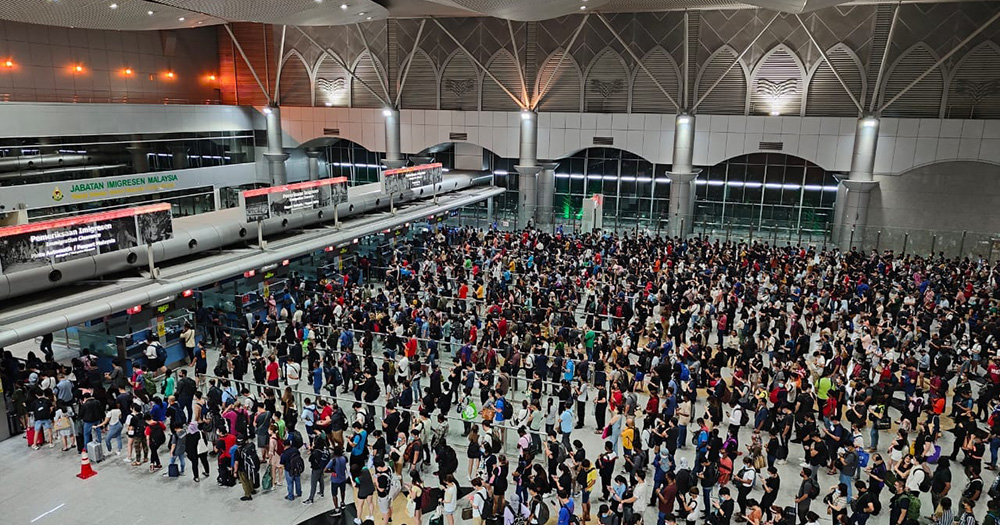Follow us on Telegram for the latest updates: https://t.me/mothershipsg
Johor's Chief Minister, Onn Hafiz Ghazi, has announced a slew of measures aimed at addressing congestion at the Sultan Iskandar Building's (BSI) Customs, Immigration and Quarantine (CIQ) checkpoint, CNA reported.
This includes extending the use of electronic gates for automated immigration processing to foreigners, among other measures.
Hafiz noted that around 211,000 people pass through the BSI checkpoint daily since international borders re-opened on Apr. 1.
The announcement was made as part of the tabling of the Malaysian state's budget for 2023.
More electronic gates to be added
Apart from extending the use of the electronic gates to foreigners, Hafiz also said more of these will be added to speed up the immigration processes for Malaysians who are passing through the checkpoint either on foot or by bus.
Hafiz was quoted by CNA as saying, "There will be more e-gates for Malaysians, from 14 to 32 units at the entry points and 14 to 26 units at the exit points."
He did not provide figures regarding the number of gates for foreigners.
Other measures include restructuring the lanes for cars and motorcycles entering and exiting Johor.
The chief minister also said the state government is studying the possibility of allowing light vehicles to use the lanes for lorries during peak hours as an "alternative route".
This will also involve upgrading the counters for the convenience of car drivers.
Johor benefitted from re-opening of borders with Singapore
Hafiz was further quoted by CNA as saying that the state had benefitted from the re-opening of borders with Singapore.
The chief minister added that for 2022, Johor had attracted the highest amount of investments among all of Malaysia's states, at RM60.9 billion (S$18.75 billion).
In addition, the state's budget for 2023 is expected to yield a surplus of RM2.44 million (S$752,000), after two years of recording deficits due to the Covid-19 pandemic, The Star reported.
Top photo via UKK BSI/Facebook
If you like what you read, follow us on Facebook, Instagram, Twitter and Telegram to get the latest updates.
